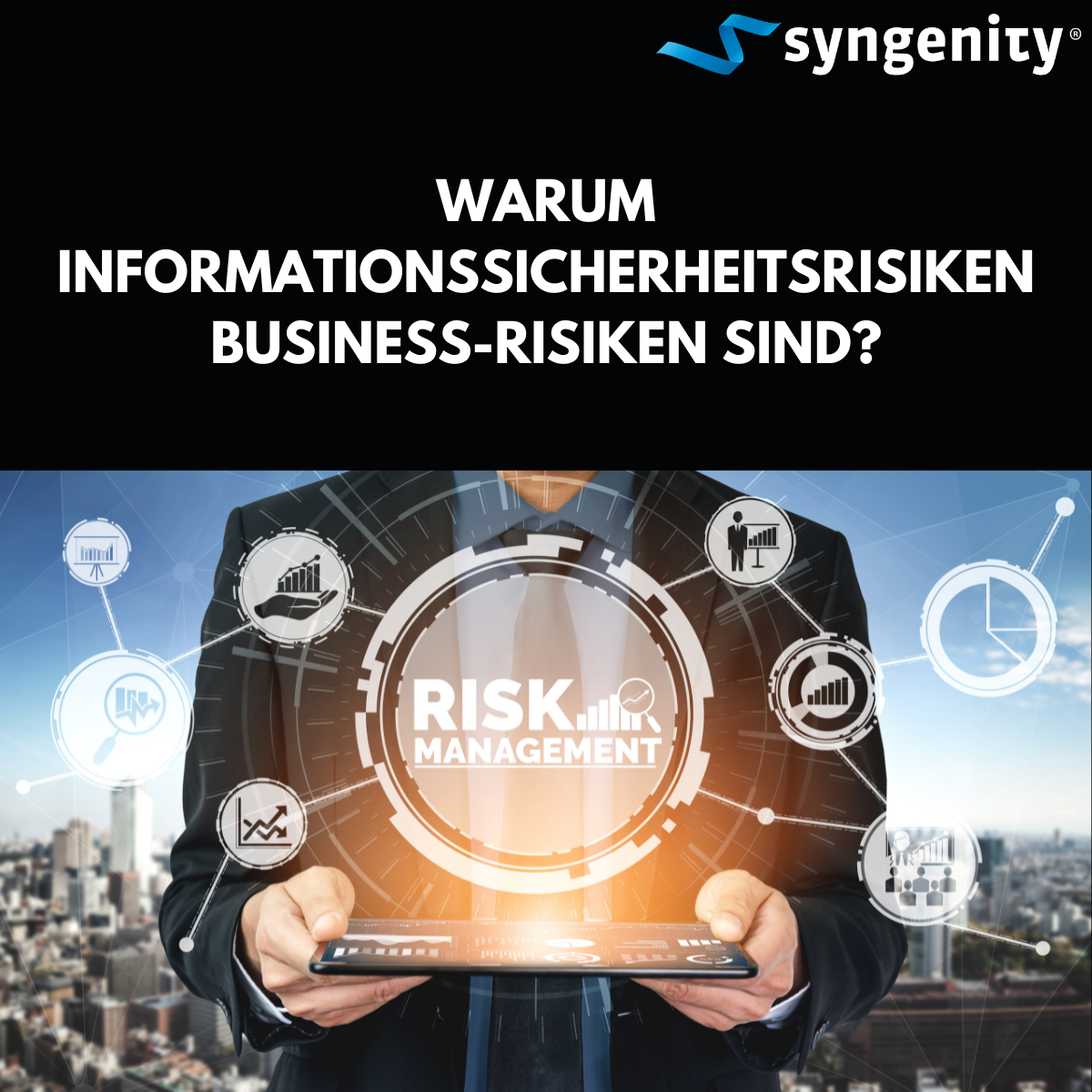Why are information security risks business risks?
In today’s digital world, companies face a multitude of risks that go far beyond technical challenges. One of the biggest threats that modern organizations face is information security risks. These risks have evolved from a purely technical challenge to a key business risk. At a time when data is the most valuable asset of many companies, cyberattacks and data leaks can not only cause financial damage, but also jeopardize a company’s reputation and competitiveness.
1. financial losses
One of the most obvious and immediate effects of cyberattacks and data leaks is financial loss. These can cause both direct and indirect costs. Direct costs include fines imposed due to breaches of data protection laws such as the General Data Protection Regulation (GDPR) and the cost of restoring data and IT systems after an attack. Indirect costs include the loss of customers, the termination of contracts and damage to company reputation. The financial impact of such incidents is often significant. Studies show that companies that fall victim to cyber attacks can expect to lose millions. For many companies, such an incident can threaten their very existence, especially if they are small or medium-sized enterprises.
2. reputational damage
A company’s reputation is one of its most valuable assets. A single security incident can permanently shake customer confidence and cause considerable reputational damage. This can translate into lost customers and a decline in market position. At a time when negative news about security incidents is quickly spread via social media, such an incident can have far-reaching consequences. A company that has worked hard for years to establish itself as a trusted partner can suffer significant damage from a single incident. It can take years to restore a good reputation – and in many cases this is not fully successful.
3. legal consequences
With the introduction of strict data protection laws such as the GDPR in Europe or the California Consumer Privacy Act (CCPA) in the USA, companies are obliged to protect the personal data of their customers and employees. Breaches of these regulations, especially as a result of security incidents, can have significant legal consequences. Companies that fall victim to data leaks not only face hefty fines, but also lawsuits from affected individuals and organizations. These legal consequences can have a significant impact on normal business operations and cause additional costs that go far beyond the immediate damage.
4. operational interruptions
Cyber attacks, especially ransomware attacks, can significantly disrupt normal business operations. With ransomware, company data is encrypted and the attackers demand a ransom for the release of the data. Such attacks can leave companies unable to operate for hours or days. The impact of business interruption is significant: production downtime, missed orders and lost business opportunities can result. In addition, there are considerable costs involved in restoring the IT infrastructure and returning to normal business operations. In some cases, the business interruption can be so severe that the company suffers long-term damage.
5. competitive disadvantages
A security incident can also lead to significant competitive disadvantages. Companies involved in a cyberattack risk not only losing existing customers, but also potential new business partners. In industries where trust plays an important role – such as the financial sector, healthcare or the technology industry – a security incident can deter potential partners. In addition, a damaged reputation can make it difficult for a company to compete in a highly competitive market. Companies that are perceived as insecure lose their edge and may struggle to maintain their market position.
6. loss of intellectual property
An often overlooked aspect of cyberattacks is the loss of intellectual property. Attackers often target sensitive trade secrets, patents and innovations that are critical to a company’s long-term success. The loss of such information can not only lead to financial losses, but can also significantly weaken a company’s ability to innovate and compete. For companies operating in highly research and development-oriented industries, the loss of intellectual property can have devastating consequences. It can take years to regain the technological advantage lost as a result of a cyber attack.
Proactive approach to information security
Information security risks should not be viewed as isolated technical challenges. They are integral components of a company’s overall risk management strategy. A proactive approach to information security is critical to minimizing these risks and ensuring long-term business success. Syngenity® offers comprehensive information security consulting services. We help companies optimize their security strategy and implement a robust information security management system (ISMS) aimed at minimizing information security risks. With a holistic approach, we help you effectively protect your organization from threats and ensure your business continuity. Contact us today and secure the future of your business with a strong focus on information security.







